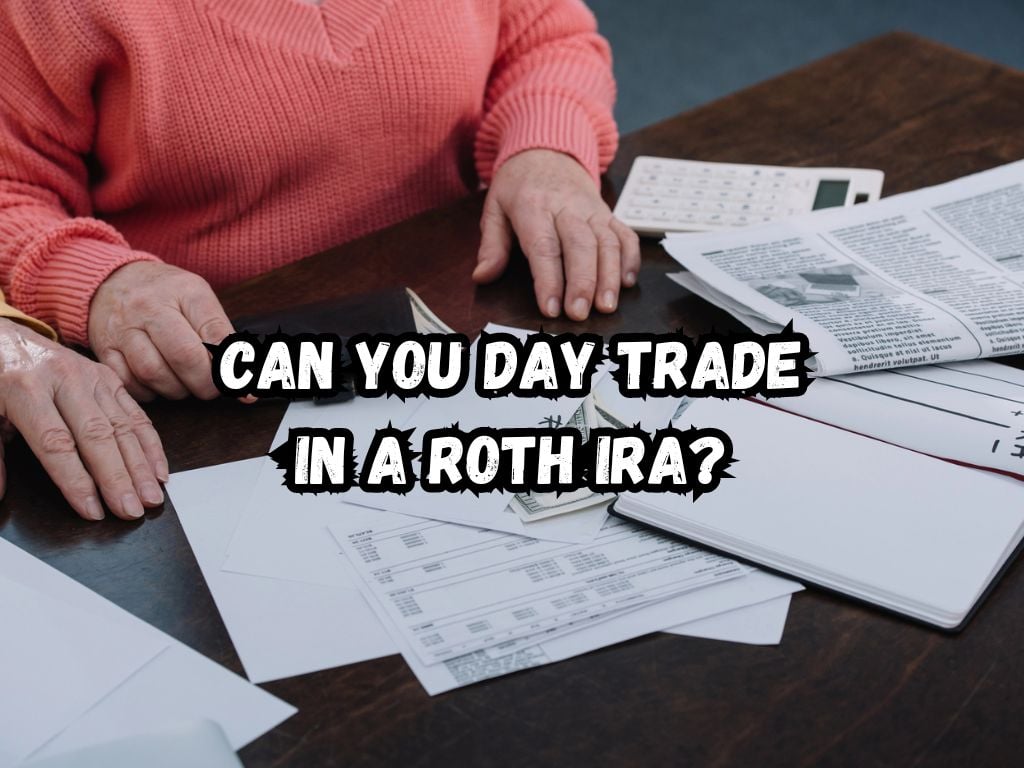The world of investing is vast with numerous strategies and account types to explore. Among these, Roth IRAs and day trading each hold a significant place. Roth Individual Retirement Accounts (IRAs) are popular for their tax advantages.
Day trading, on the other hand, is known for its potential for quick profits. Merging these two raises a crucial question: Can you day trade in a Roth IRA?
This article delves into the intricacies of Roth IRAs, defines day trading, and explores the compatibility of these two investment strategies.
Understanding Roth IRAs
A Roth IRA is a retirement savings account that offers tax-free growth and tax-free withdrawals in retirement. Unlike traditional IRAs, contributions to a Roth IRA are made with after-tax dollars.
The main advantage of a Roth IRA lies in its tax treatment, allowing earnings to grow tax-free over time.
Day Trading Defined
Day trading involves buying and selling securities within the same trading day. Traders capitalize on short-term market movements to make profits.
It requires time, skill, and discipline and carries higher risk compared to traditional investing strategies.

Can You Day Trade in a Roth IRA?
Technically, there are no IRS rules specifically forbidding day trading within a Roth IRA. However, certain brokerage and account constraints may limit the extent to which you can engage in day trading activities.
Potential Challenges in Day Trading within Roth IRAs
Day trading in a Roth IRA comes with its own set of challenges:
- Lack of Margin Trading: Roth IRAs typically do not allow traders to use margin. This means you can only trade with the cash available in your account.
- Pattern Day Trading Rule: Although more relevant to margin accounts, it’s critical to understand that frequent trading could attract scrutiny under the Pattern Day Trader (PDT) rules, even in non-margin accounts like Roth IRAs.
- Settlement Period: Trades in a Roth IRA must settle before the funds can be used again. This T+2 or T+3 settlement rule can restrict the ability to trade frequently.
The Downsides of Day Trading in a Roth IRA
Day trading in a Roth IRA is not all smooth sailing. The key downsides involve:
- Risk to Retirement Funds: Day trading is risky. Using retirement accounts for day trading could jeopardize your long-term savings.
- Tax Benefits Misuse: The primary benefit of a Roth IRA is its tax-free growth, aimed at long-term gains. Day trading disregards this long-term growth principle.
Alternative Strategies for Roth IRA investments
Instead of day trading, consider these safer investment strategies for your Roth IRA:
- Diversified Portfolios: Building a diversified portfolio of stocks, bonds, and ETFs.
- Index Funds: Investing in index funds offers exposure to a wide segment of the market with a single investment, reducing risk.
Brokerage Restrictions and Requirements
Brokerages play a critical role in shaping day trading policies within Roth IRAs. Given the distinct rules each platform upholds, investors must select a broker that aligns with their specific day trading objectives.
Key factors could include the broker’s commission structure, trading platforms, customer support, and educational resources. Moreover, some brokerages may apply restrictions to mitigate their risk. For instance, they could limit types of trades, number of trades per day, or even prohibit day trading altogether within Roth IRAs.
Understanding these requirements and how they align with an investor’s day trading strategy is paramount to successful and compliant day trading within a Roth IRA.

Frequently Asked Questions
What are the IRS rules for day trading in a Roth IRA?
The IRS does not have specific rules against day trading in a Roth IRA, but brokerage practices and account restrictions may apply.
How does the pattern day trading rule affect Roth IRA traders?
The pattern day trading rule mainly applies to margin accounts. However, frequent trades in a Roth IRA could cause your broker to impose certain restrictions.
What are the potential consequences of day-trading in a Roth IRA?
Day trading could lead to significant short-term losses and might jeopardize the long-term growth potential of retirement savings.
Can I use margin trading within a Roth IRA?
Typically, margin trading is not allowed in Roth IRAs due to the higher risk it carries. Some brokerages may allow “limited margin”, meaning that unsettled funds can be used to trade.
Can I conduct frequent trades within my Roth IRA that aren’t considered “day trading”?
Yes, but this depends on your broker’s definitions and any restrictions they may apply to trading activities in Roth IRAs.
Conclusion
Endeavoring to day trade within a Roth IRA captures the clash between the pursuit of rapid gains and the principle of safeguarding one’s financial future.
The constraints and risks highlighted underscore the importance of approaching this path with caution, armed with knowledge and a clear understanding of one’s financial goals.
While day trading in a Roth IRA is not explicitly prohibited, it comes with significant limitations and risks. The structure of Roth IRAs is designed to cater to long-term growth rather than the high-risk, short-term nature of day trading.
Alternative strategies that focus on diversification and long-term growth are more in line with the purpose of Roth IRAs.
Before considering day trading in your Roth IRA, weigh the risks against the potential rewards and consider if it aligns with your long-term financial goals.


 Tags:
Tags:










